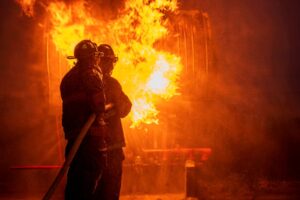The U.S. Chemical Safety and Hazard Investigation Board (CSB) on June 4 announced it deployed a team to investigate a fatal fire at a liquid nitriding facility in downtown Chattanooga, Tennessee.
One person died after suffering severe burns during the incident at the TS USA facility, which uses a nitriding process to harden the outer layer of metal parts.
Four CSB investigators arrived on June 4 at the site of the May 30 fire at the TS USA facility. The CSB team commenced investigative activities, including documentation of the incident site and interviews with facility employees.
The board investigates industrial chemical incidents but does not issue citations or fines. The CSB makes safety recommendations to companies, industry organizations, labor unions, and regulatory agencies, including the Environmental Protection Agency (EPA) and the Occupational Safety and Health Administration (OSHA). Board members are appointed by the President subject to Senate confirmation.
The CSB has also launched investigations into toxic chemical releases at two facilities in Louisiana–the release of hydrogen fluoride (HF) and chlorine at the Honeywell Performance Materials and Technologies facility in Geismar, and the release of ethylene oxide (EtO) at the Dow Chemical Louisiana Operations facility in Plaquemine.
On January 23, 2023, a heat exchanger ruptured at the Honeywell facility in Geismar, resulting in an explosion and the release of approximately 870 pounds of hydrogen fluoride and 1,700 pounds of chlorine. Local officials closed nearby highways. Workers at the facility sheltered in place. Property damage at the facility was estimated at $4 million, but no injuries were reported.
Dow reported to the CSB that a detonation occurred on July 14, 2023, in a pipe segment of an ethylene oxide pressure relief system within a glycol manufacturing unit at Dow’s facility in Plaquemine. Hot combustion gases subsequently entered a distillation column reflux drum, creating high-pressure conditions that ruptured the pressure vessel.
EtO that passed through the rupture disc contacted air within the downstream piping, triggering a fire and an explosion. Local officials issued a shelter-in-place order for hundreds of residents within a half-mile of the plant.
No injuries were reported and a dollar amount for property damage has not yet been determined, according to the CSB.
“Because we recently completely eliminated the CSB’s long-standing backlog of investigation reports, we now have the ability to address other serious chemical incidents reported to the agency,” CSB Chairperson Steve Owens said in a statement.
“Fortunately, no one was seriously injured or killed in either of these two events, but both involved the release of highly toxic chemicals.”
Serious chemical incidents must be reported to the agency under the board’s Accidental Release Reporting Rule.
CSB Applauds New NFPA Guidance
The CSB applauded the National Fire Protection Association’s new guidance–NFPA 401, “Recommended Practice for the Prevention of Fires and Uncontrolled Chemical Reactions Associated with the Handling of Hazardous Waste.”
The NFPA developed a set of recommended practices in response to the CSB’s recommendations in several investigations of fires and explosions involving hazardous materials.
“Although it took several years, we appreciate NFPA’s efforts to develop this significant document,” CSB’s Chairperson Owens said in a statement. “It provides important guidance on practices and safeguards necessary to prevent fires and explosions associated with these types of hazardous materials and can help prevent similar incidents in the future.”

